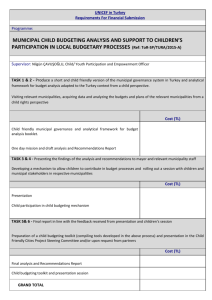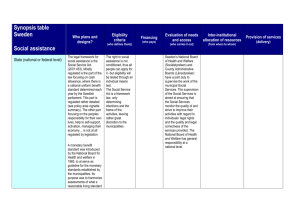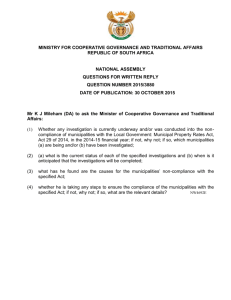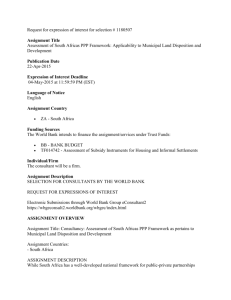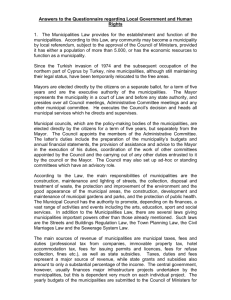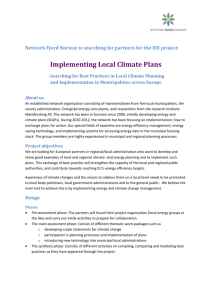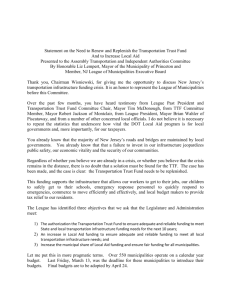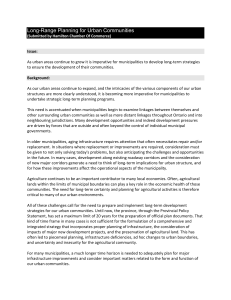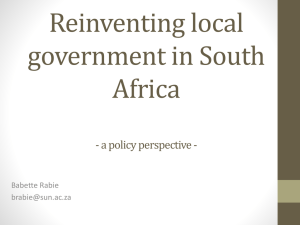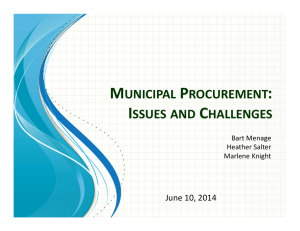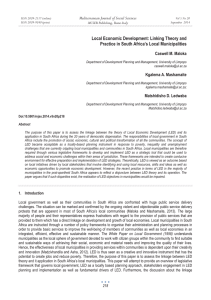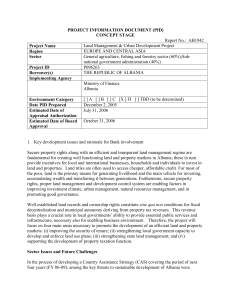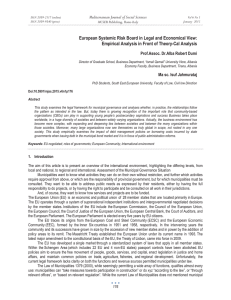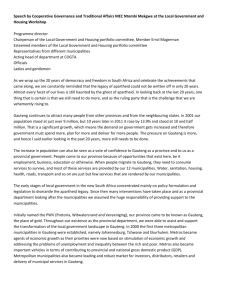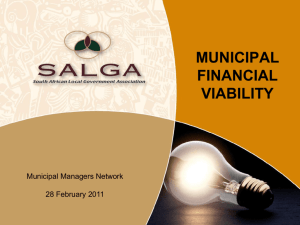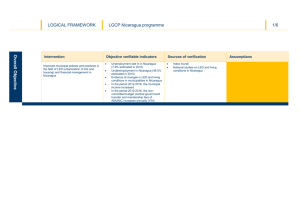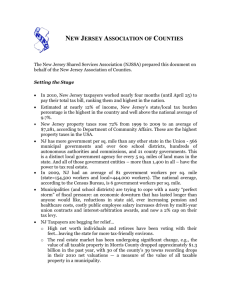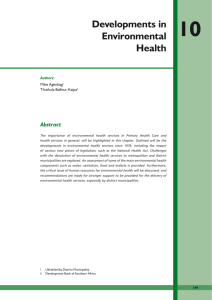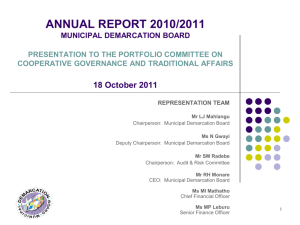Climate Action Plans For Municipalities
advertisement
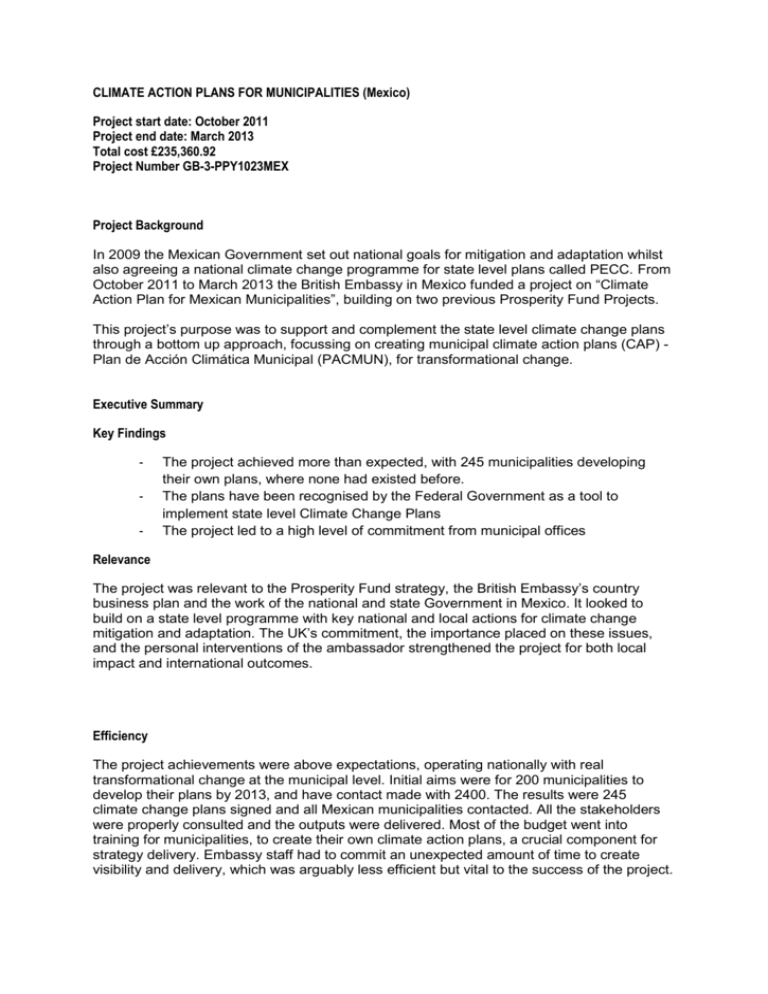
CLIMATE ACTION PLANS FOR MUNICIPALITIES (Mexico) Project start date: October 2011 Project end date: March 2013 Total cost £235,360.92 Project Number GB-3-PPY1023MEX Project Background In 2009 the Mexican Government set out national goals for mitigation and adaptation whilst also agreeing a national climate change programme for state level plans called PECC. From October 2011 to March 2013 the British Embassy in Mexico funded a project on “Climate Action Plan for Mexican Municipalities”, building on two previous Prosperity Fund Projects. This project’s purpose was to support and complement the state level climate change plans through a bottom up approach, focussing on creating municipal climate action plans (CAP) Plan de Acción Climática Municipal (PACMUN), for transformational change. Executive Summary Key Findings - The project achieved more than expected, with 245 municipalities developing their own plans, where none had existed before. The plans have been recognised by the Federal Government as a tool to implement state level Climate Change Plans The project led to a high level of commitment from municipal offices Relevance The project was relevant to the Prosperity Fund strategy, the British Embassy’s country business plan and the work of the national and state Government in Mexico. It looked to build on a state level programme with key national and local actions for climate change mitigation and adaptation. The UK’s commitment, the importance placed on these issues, and the personal interventions of the ambassador strengthened the project for both local impact and international outcomes. Efficiency The project achievements were above expectations, operating nationally with real transformational change at the municipal level. Initial aims were for 200 municipalities to develop their plans by 2013, and have contact made with 2400. The results were 245 climate change plans signed and all Mexican municipalities contacted. All the stakeholders were properly consulted and the outputs were delivered. Most of the budget went into training for municipalities, to create their own climate action plans, a crucial component for strategy delivery. Embassy staff had to commit an unexpected amount of time to create visibility and delivery, which was arguably less efficient but vital to the success of the project. Effectiveness The most impressive outcome of the project was the level of buy-in created and commitment generated in municipal offices. There was no legal requirement for these plans, but the project convinced them of the benefits and they were committed to producing them because they saw the value and wanted to. In addition, these plans have been recognised by Federal Government as a tool to implement state level Climate Change Plans (obligatory by Mexican law). Sustainability Sustainability remains a challenge. Electoral terms were difficult for the continuity of PACMUN plans (municipal term is three years), but state level commitment was built to ensure new mayoral offices were trained and versed in the plans. “Train the trainer” initiatives and a CD with all resources and courses were given to municipalities to help build sustainability. Secondly, the project did not have a component for training on source allocation for implementation of the climate change plans. A second phase of the project is in progress, financed by the FCO, which will answer these needs. Several state governments are rethinking the financial mechanism for PACMUN. In addition, the Federal Government is investigating a Green Fund as part of the Climate Change Law. An exit strategy should have been built into the design of the project, to assure transfer of ownership to the Mexican Government when funding ended. Impact This project has created a cultural change and shift in mindset, forming Climate Change experts at municipal and state levels. PACMUN plans have been recognised by State and Federal Government as a tool to implement state level PECC Climate Change Plans. The Federal Government considers PACMUN as the institutional framework at a local level. Lastly, this project has led to the identification of follow up projects: PACMUN 2 and 3 which will focus on implementation. Project Management The project was well managed in sustaining momentum, key stakeholder engagement and financial monitoring. The project was adapted to reach the maximum amount of municipalities, by piloting the methodology in 9 municipalities (the original output was five) and utilising virtual learning tools. The partnership between the technical groups (ICLEI), National Government (INECC) and international support from the British Embassy created further weight for municipality ownership. The nature of the project design also provided political access for the British Embassy to the Mexican government contacts at a local, state and federal level. Main Lessons Learned 1. Local buy-in was key to project success. Local university partners provided sustainability between design of the plan and its implementation. 2. State level support ensured sustainability of the plan. 3. Municipal group strategies provided easier cases for state level intervention.
